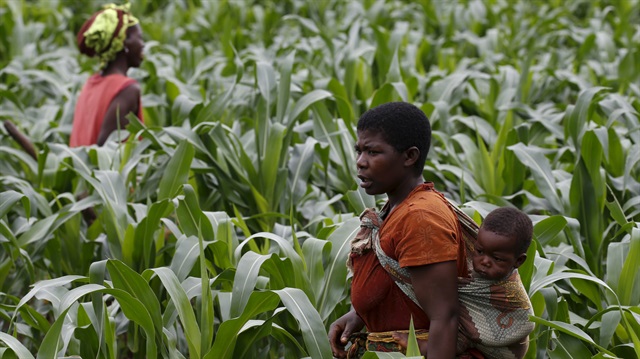
Severe drought in recent years has pushed many farming families in southern Africa deeper into poverty. At the start of 2017, about 6.5 million Malawians, more than a third of the population, were dependent on food aid.
This year, more than 700,000 farming families are affected by dry spells, according to an assessment carried out by the government and FAO.
Climate change is expected to bring more drought and less predictable weather conditions over the coming decades, according to the government's Malawi 2015 Floods Post Disaster Needs Assessment Report.
Farmers in parts of the country are being trained to build deep trenches, and plant trees and vetiver grass, to help trap and hold water for their crops.
To help her fields cope with the shortage of rain, farmer Thom uses mbeya, a fertiliser made locally from chicken and goat droppings, ash, maize bran, chemical fertiliser and water which are left to mature for 21 days.
The fertiliser improves the texture of soil and its ability to hold water during dry spells, she said.
"As such, my maize field looks more healthy and robust compared to other gardens that never applied it," Thom said.
Hello, the comments you share on our site are a valuable resource for other users. Please respect other users and different opinions. Do not use rude, offensive, derogatory, or discriminatory language.
The floor is all yours.








